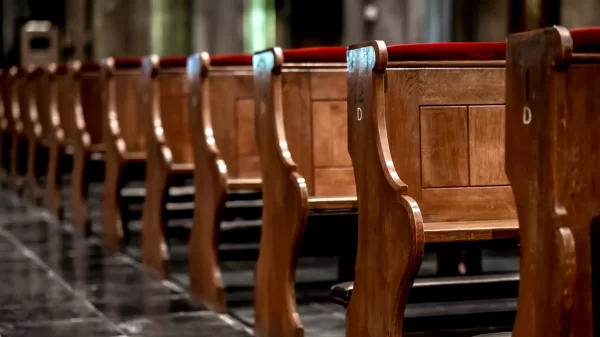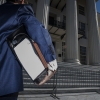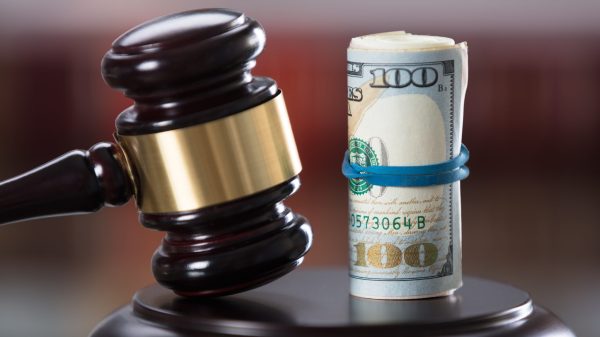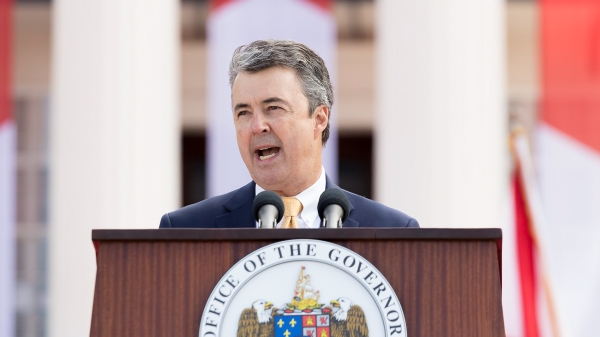The city of Birmingham is opposing Attorney General Steve Marshall’s request for a Jefferson County Circuit Court to temporarily delay a judge’s decision striking down a 2017 law that protests Confederate monuments in Alabama.
In a court filing earlier this month, city attorneys asked the court to maintain its ruling that overturned the law.
If Marshall’s Jan. 25 request for a stay is granted, the law and its legal protections for a Confederate monument in Birmingham will remain in place until the court case travels through the appeals process.
The two motions come after Jefferson County Circuit Judge Michael Graffeo ruled on Jan. 14 shortly before his retirement this month that the law — which affords protections to monuments more than 40 years old — violated the city’s rights.
Though Graffeo retired, the Alabama Supreme Court ordered him to continue presiding over the case.
In its motion for a stay, the state argued that the city could potentially remove the monument before the appeals process is completed.
“This action should be stayed because if the Court’s judgment leads the City or others to believe it is legal to alter or destroy monuments before the Supreme Court of Alabama has the opportunity to address this case, the State may suffer irreparable harm,” the state wrote in its motion. “Historical monuments and buildings could be destroyed or altered in such a way that they cannot be rebuilt.”
Some have called for Mayor Randall Woodfin to take advantage of the court’s decision and swiftly remove the monument, but the ruling has an automatic 30-day stay, which has prevented any such action until this week.
The 30-day automatic stay is now up and the city could potentially take action unless a new stay is ordered. But the city said in its response to the state’s request for a stay that it has not suggested it would take action to remove the monument.
“The City has taken no action or made any representation that would suggest the likelihood of the monument’s removal while the appeal is pending — and that should be sufficient,” the city’s lawyers wrote.
Marshall sued the city in August 2017 after officials placed plywood boards around a Confederate monument in Birmingham’s Linn Park. His lawsuit argued that the make-shift plywood wall violated the law’s provisions that prohibit the “altering” of historic monuments.
The 52-foot obelisk monument to Confederate Soldiers and Sailors was built in 1905, well within the law’s protections. The monument has been a flashpoint in Alabama for the broader debate over what to do with monuments to Confederate figures across the country.
The plywood boards remain around the monument.
Graffeo’s ruling on Jan. 14 held that the law restricts the right of the citizens of Birmingham to speak collectively through their city government and control what goes in their parks.
“Just as the state could not force any particular citizen to post a pro-Confederacy sign in his or her front lawn, so too can the state not commandeer the city’s property for the state’s preferred message,” Graffeo wrote in his order. “That the act compels the city to express the state’s preferred message does not transform the message into the state’s speech.”
The city argued in their filing last week that no stay should be ordered because the state could assess monetary fines and penalties against the city for violating the act.
“Not only do the citizens of the City of Birmingham continue to suffer the indignity of the monument and the negative message it projects, the State’s assessment of alleged penalties would continue to accumulate at a rate of $25,000 per day until the enforceability were determined,” they wrote. “At a minimum, the City is due to have protective measures established by the Court that would bar the State’s claim for penalties while the appeal is pending.”






















































